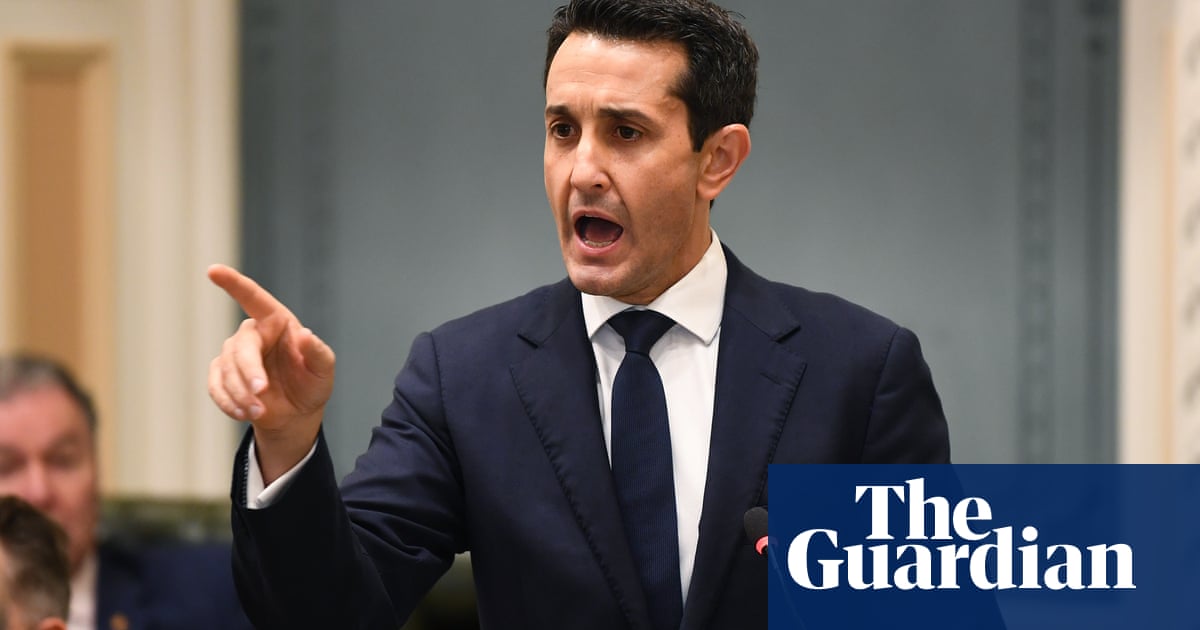The United Nations special rapporteur on torture has urged Queensland’s parliament to vote down the government’s headline youth crime legislation, calling it“incompatible with basic child rights”.
The Liberal National government ran on a slogan of “adult crime, adult time” at last October’s election. Itpassed legislation to sentence childrenconvicted of 13 offences the same as adults in December.
Parliament will consider a second round of legislation, adding an additional 20 offences, this week.
In an open letter to Australian authorities, Alice Jill Edwards, the special rapporteur on torture and Albert K Barume, special rapporteur on the rights of Indigenous peoples, said Australia’s criminal legal systems “appear to be in crisis nationwide”.
Sign up for Guardian Australia’s breaking news email
They warned that the system “is creating a future under-class of Australians”.
“Children are suffering undue harm to their safety and wellbeing, as well as to their educational and life prospects as a result of shortsighted approaches to youth criminality and detention.”
Edwards and Barume specifically singled out the MakingQueenslandSafer (Adult Crime, Adult Time) Amendment Bill in the open letter.
“[The bill] would have an especially negative impact on the lives of Indigenous children, who are already disproportionately represented in the criminal legal system. We urge members of the Queensland parliament to vote against the bill,” they said.
Edwards, a human rights lawyer, is the first Australian in the role.
In April, Queensland’s premier,David Crisafulli, criticised the UN for interfering in local politics, saying “this place will govern its laws”.
“This place will determine how we keep Queenslanders safe, and this place will be accountable to Queenslanders, not United Nations boffins,” he said.
However, the government has conceded thatboth rounds of legislationare contrary to state and international human rights law, with the youth justice minister, Laura Gerber, acknowledging the legislation would limit“the right to protection from cruel, inhumane or degrading treatmentand the right to humane treatment when deprived of liberty” by requiring the increased use of police watch houses to hold children.
Some of the offences included in this week’s legislation will apply to few or even no youth criminals.
According to statistics shared with the parliamentary committee by the Department of Youth Justice and Victim Support, several have not been committed by a child in the last five years, such as accessory after the fact to murder or kidnapping for ransom.
Others are extraordinarily rare; just one child has been proven to be guilty of kidnapping in that time.
In total there were just 467 counts of the new offences committed in 2024.
About624,414 offences were committed in 2024, according to police statistics. Youth crime represents about 13% of all crime,according to the Queensland Audit Office.
The opposition leader, Steven Miles, announced on Monday afternoon that his party would support expanding the laws. Labor also voted for the first tranche.
“We won’t be opposing the LNP’s attempts to fix their mistakes,” Miles said. “Of course, we couldn’t stand in the way anyway. The LNP has a big majority and so these laws will pass either way.”
